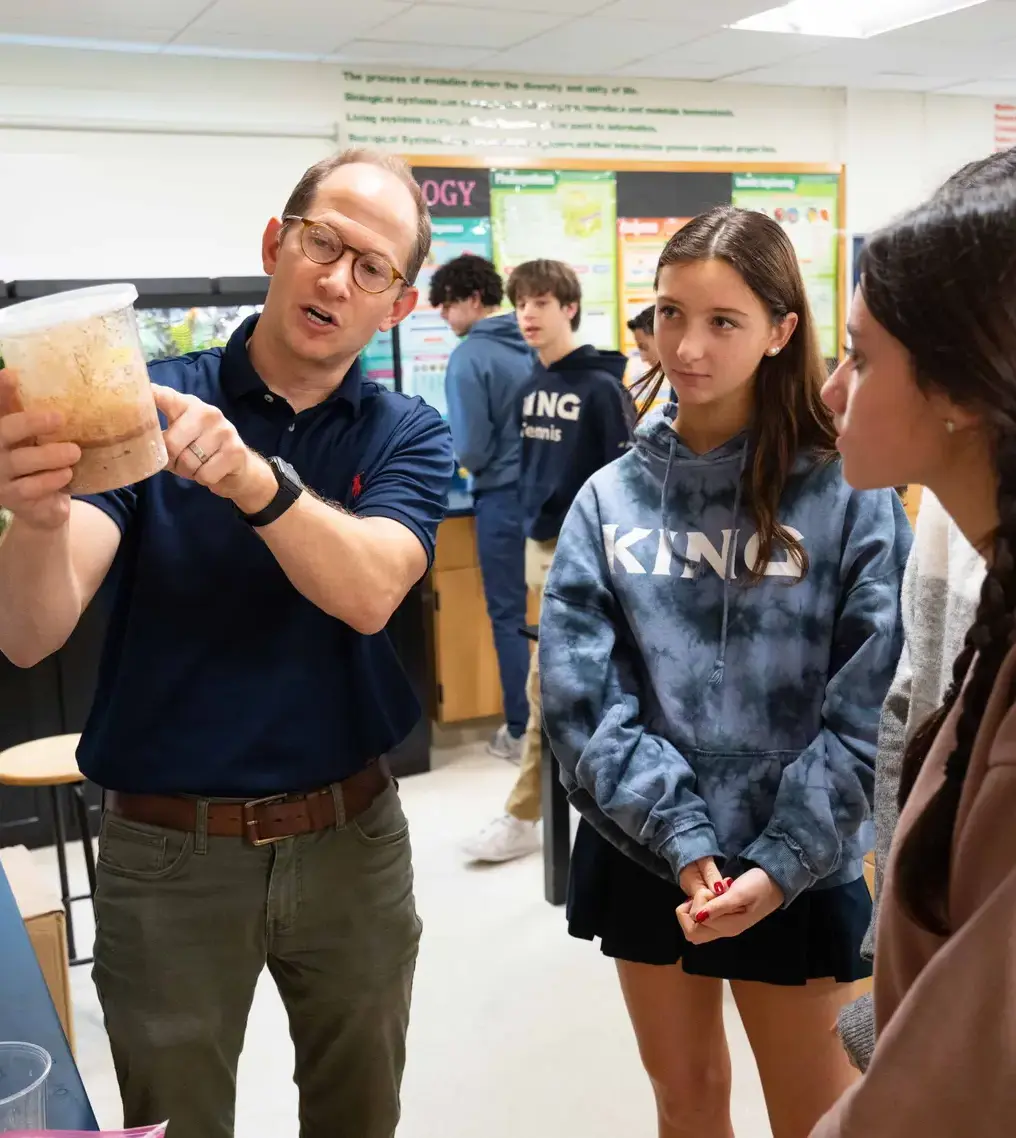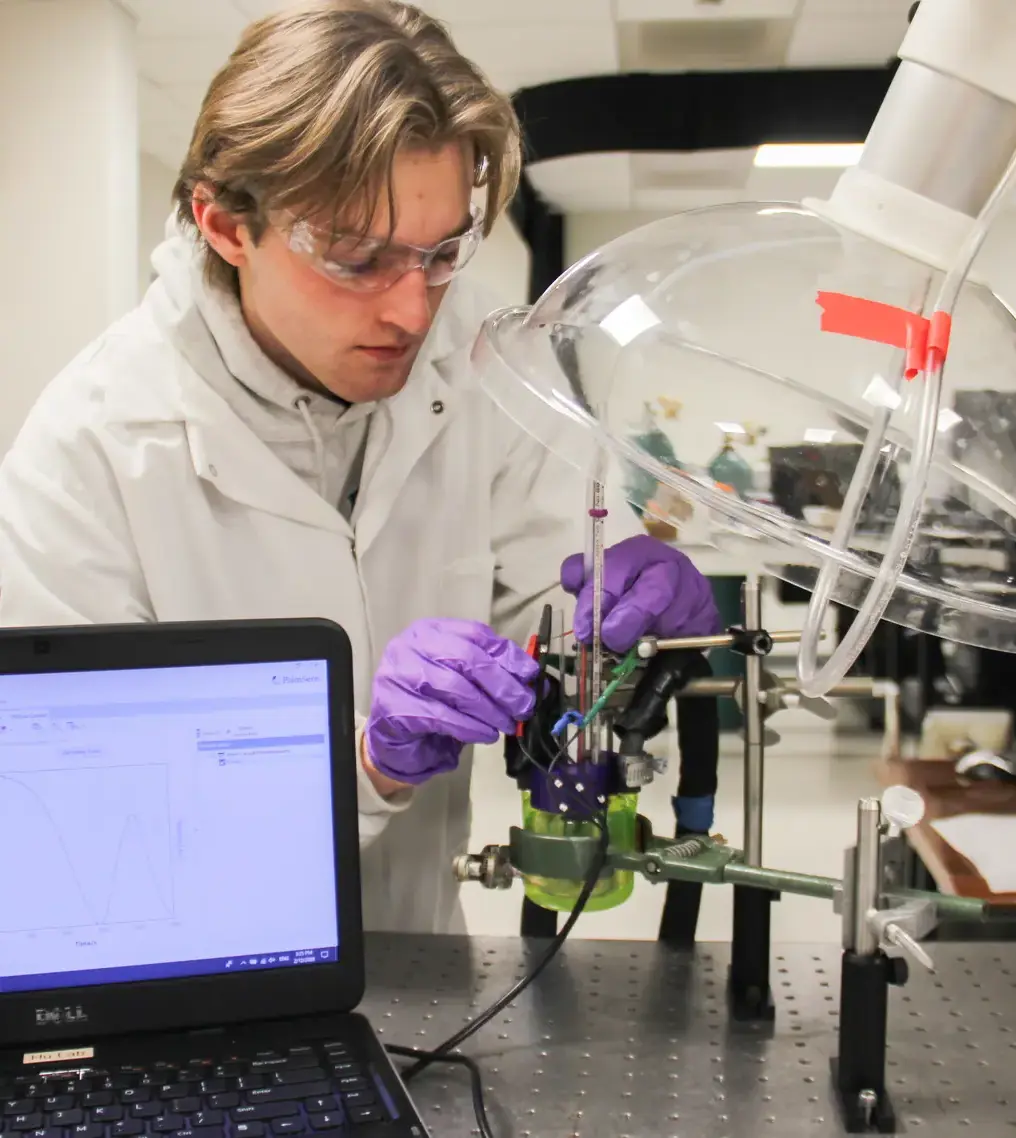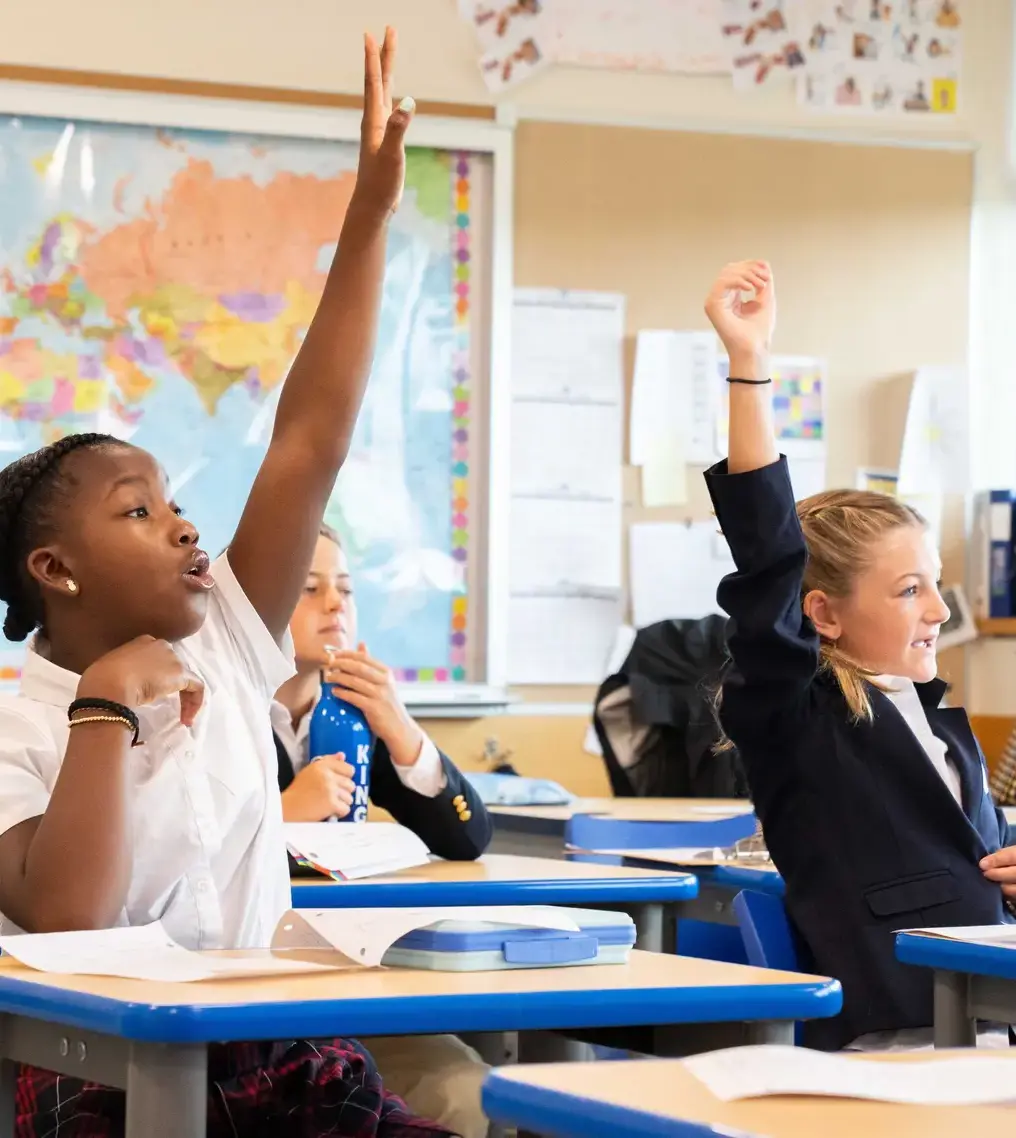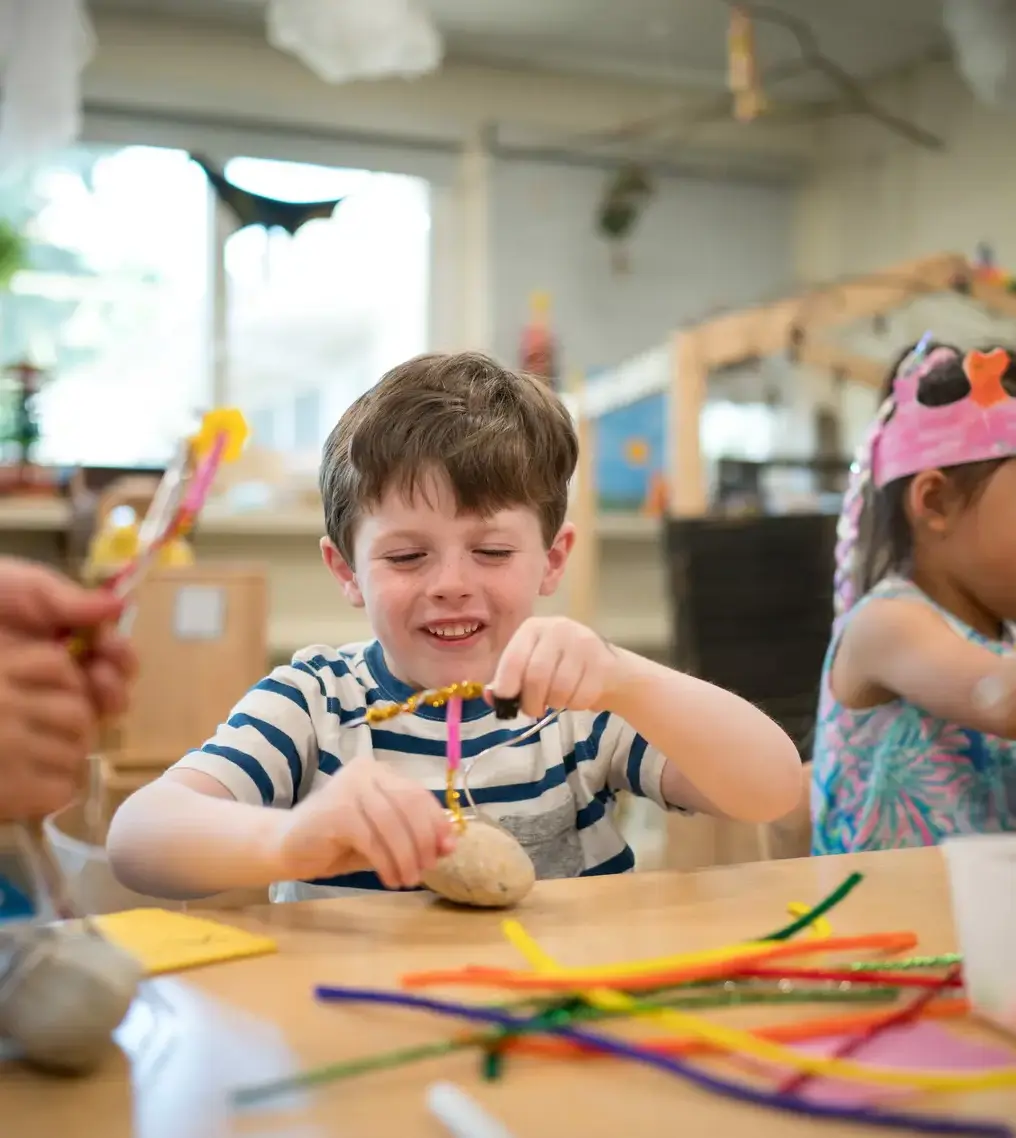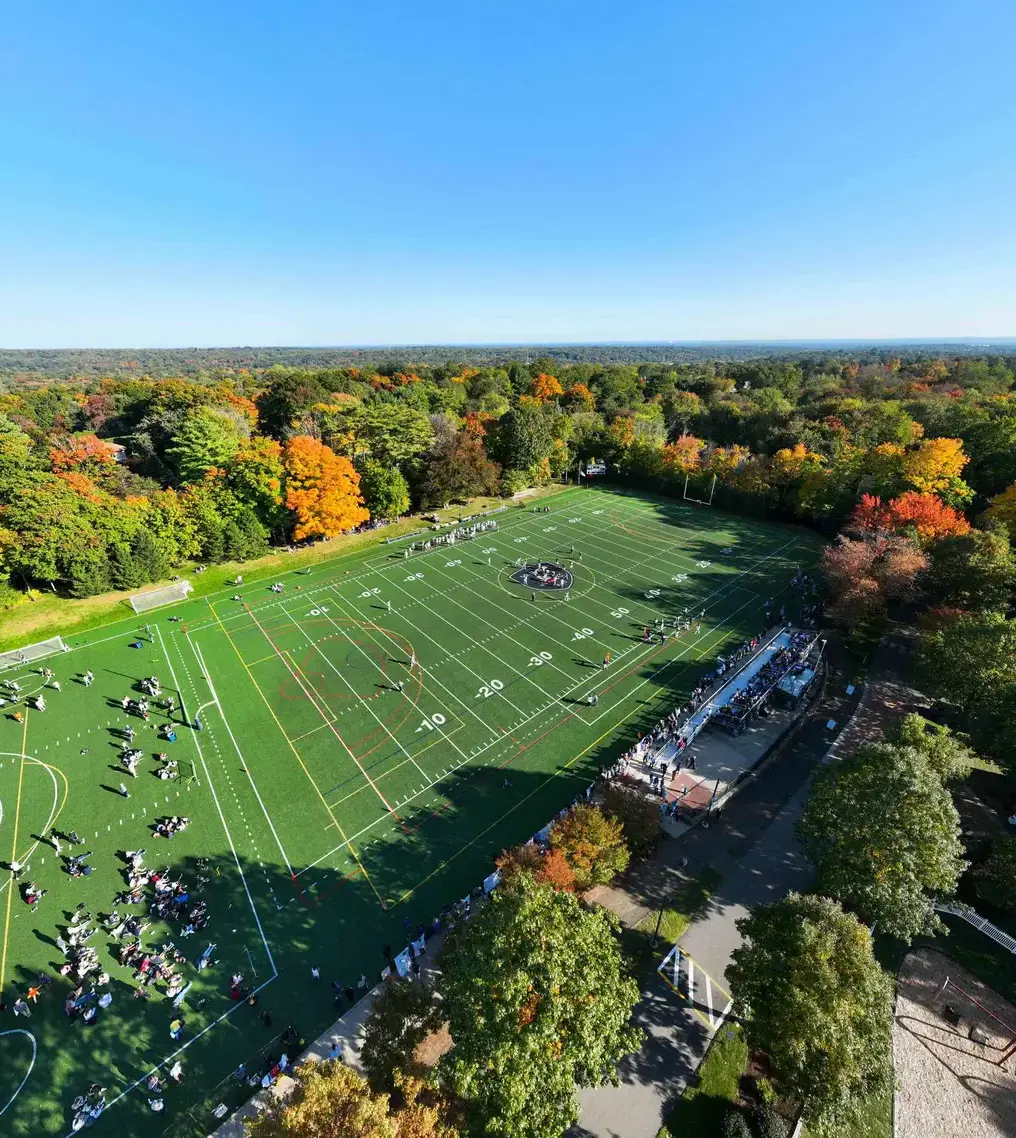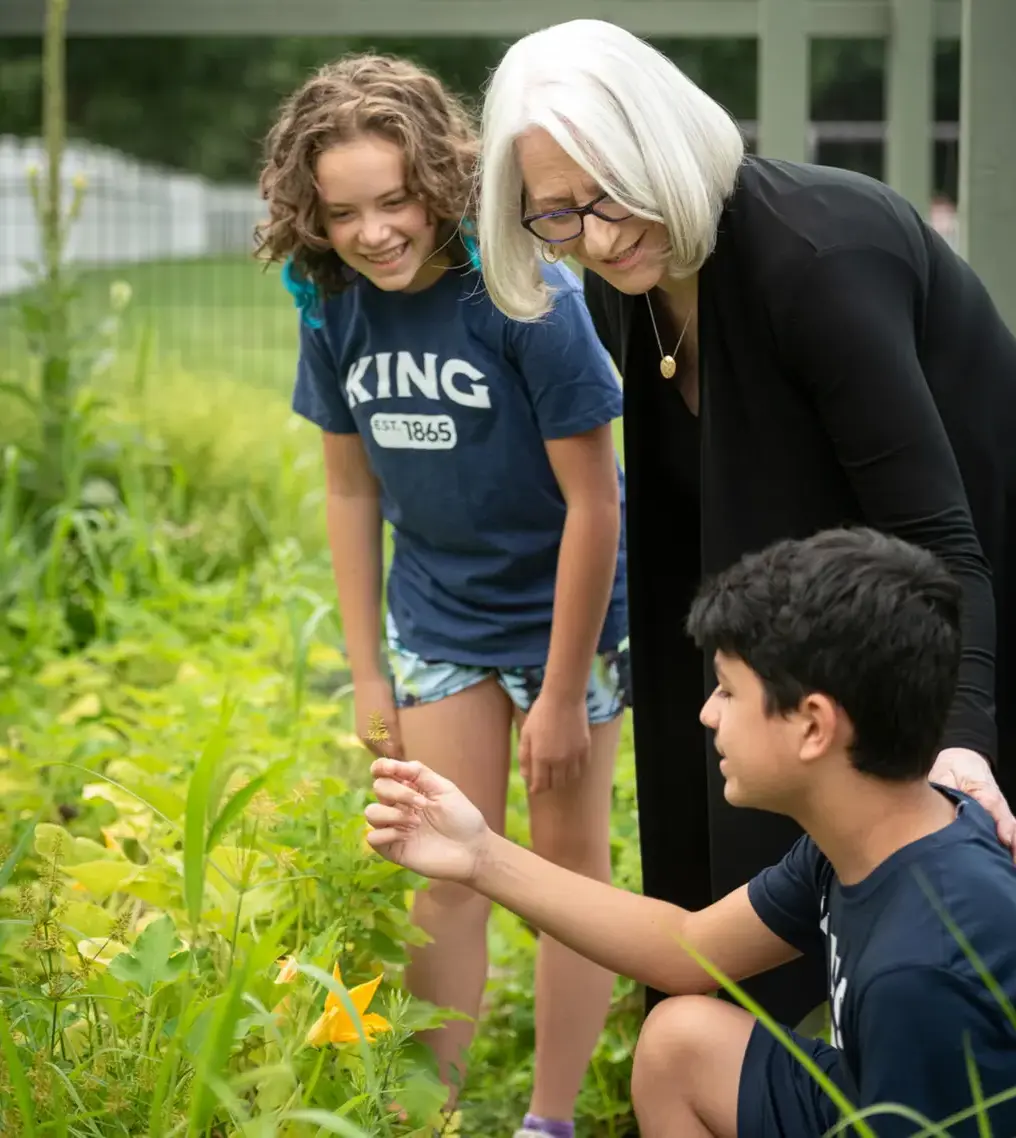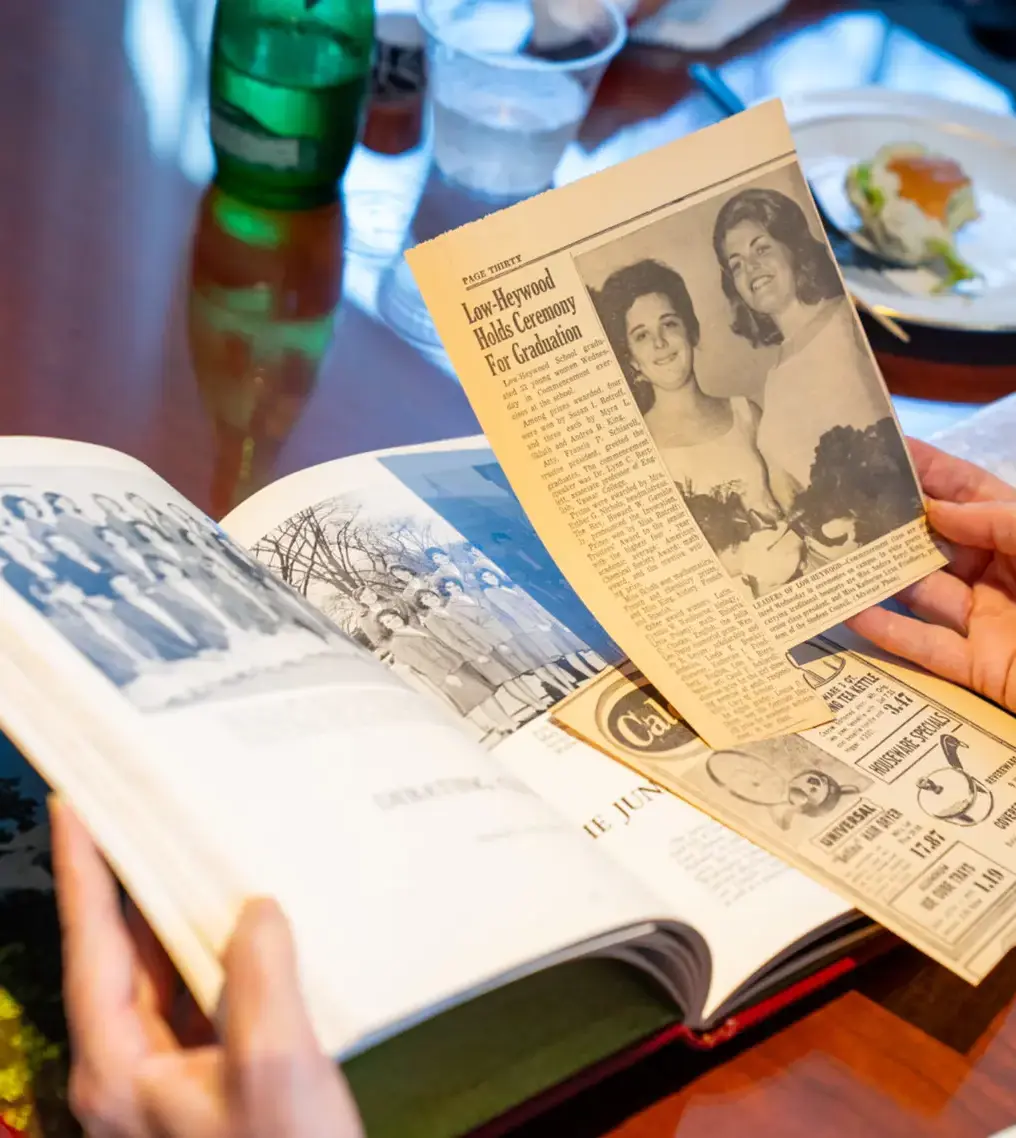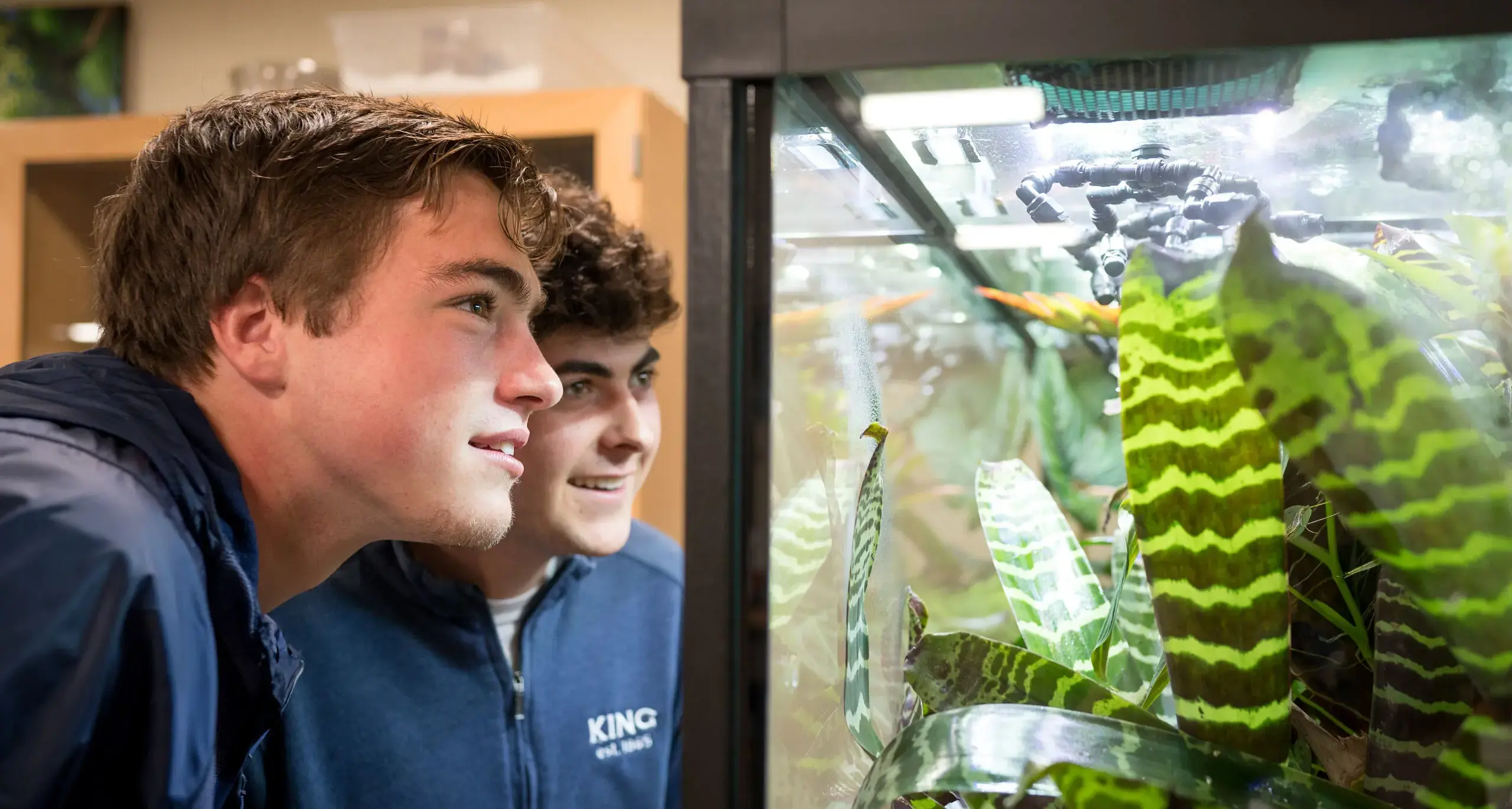Professional Growth & DEVELOPMENT
Faculty members at King are talented, committed, knowledgeable, energetic, and passionate
At King, we strongly believe that a top-quality Professional Growth and Development (PGD) program is the cornerstone of our success.
They understand that in order to be the very best, they must be lifelong learners as well as professional educators, and they know that the two are intimately linked.
It is in this spirit that King has developed a comprehensive, multi-dimensional, and systematic approach to Professional Growth and Development.
Below are some of the opportunities King Faculty have for Professional Growth and Development each year.
| Graduate Study Assistance |
|---|
|
King provides a program to support graduate study for Faculty. Since the inception of the program in 2005-2006, King faculty members have pursued graduate degrees at a variety of universities and colleges including the following institutions:
|
| Graduate Study Funding Program |
|
The Graduate Study Funding program is designed to fund full-time permanent faculty, full-time administrative faculty, or members of the leadership team, for courses taken towards a master’s or doctorate degree, second master’s degree, or Certificate of Advanced Study where applicable. Priority will be given to applicants who are applying to take courses towards their first master’s degree. Applicants must obtain their supervisor's approval prior to applying for this program. Approval from the Graduate Study Funding Committee is required. The full funding of the program is dependent upon budgetary constraints, which will be reviewed on an annual basis, and the number of individuals participating in the program. To the extent that the total cost of the program for any one year significantly exceeds the amount that is budgeted, the funding per participant may be proportionately scaled back.
Courses must be taken at an accredited college or university. This program is separate from King’s Professional Growth and Development program.
|
| Summer Sabbaticals |
|
King established Summer Sabbatical grants for faculty in 2006. These grants were established to provide funding to support teachers who wish to explore topics and ideas and to develop their knowledge and expertise in a manner that will positively impact the work that they do with students at King.
King faculty summer sabbatical provides funding to support teachers who wish to explore subjects and ideas and develop their knowledge and expertise in a manner that will positively impact the work that they do with students here at King. Summer sabbaticals are intended to ease the financial commitment that is generally associated with this sort of summer enterprise.
The school has separate funding for programs of this sort. Summer sabbaticals can consist of a wide variety of activities, including but not limited to travel associated with the faculty members desired area of growth, in-depth research that requires devoted attention and time away from one’s day to day affairs, or an opportunity to reflect upon their practice in a longer-term disciplined way. In order to apply for a King Faculty Summer Sabbatical, you must have completed three consecutive years of employment at King. Preference will be given to teachers with extensive experience in schools – here and elsewhere. A teacher who is awarded a summer sabbatical must wait at least four years before applying for a second time. Applicants must be full-time King educators – in good standing. A sabbatical recipient must be contracted for employment at King for the upcoming school year. A committee, consisting of the Head of School, the Director of DEIB, and members of the Professional Growth and Development Committee, will review applications. A maximum of three sabbaticals will be awarded annually. Recipients will not be required to submit receipts detailing the spending of this grant money. Recipients will be granted the stipend, and will then be in a position to plan their experience and spend in a manner consistent with the details of their proposal. This will be considered taxable income rather than reimbursable expenses. A teacher who is awarded a King Summer Sabbatical will be asked to give a 10-15 minute presentation to the entire faculty and staff. In addition to this presentation, recipients will be asked to write a clear, two or three-page written summary of the experience. This will be submitted to the Head of School, before the end of September. If a sabbatical recipient does not complete the activities detailed in the application, the award will be returned to the school. There is a fourth summer sabbatical awarded annually: The Patricia McDermott Summer Grant for King Faculty. This $4,500 grant is the largest Sabbatical grant and represents the highest honor we bestow on a teacher. This grant is presented each year to the faculty who propose doing significant academic-related work that will enhance their professional development and their contribution to the classroom. The strongest application will be awarded this sabbatical and will be presented at Commencement. Upon conclusion of the sabbatical, the recipient will give a presentation to the entire faculty and staff, as well as meet with and present to the McDermott family. Past Examples of Sabbatical ExperiencesShevon continued her 2015 Venice research on the MOSE Project in 2023, focusing on the impact of recent droughts on the city. Interviewing residents and officials, she explored measures like elevated walkways and waterproofing to address rising water levels. She applied these insights to create lesson plans for her lower school classes, using Venice's challenges to teach about global issues like climate change and geological engineering. During his summer sabbatical, Daniel researched digital wellness trends and proposed a book titled "Calling All Meta-Activists." Emphasizing that responsible tech use is key to digital citizenship, he aims to empower youth through his work at King and the book, encouraging them to advocate for systemic change in technology and politics. Rachel's research in Berlin delved into the city's history, exploring how memories of 20th-century catastrophic events are transmitted through generations.
Inspired, she designed two Grade 10 World History projects, one examining the 1936 Olympics and the other exploring the responsibility of ordinary Germans for the Holocaust. Students delve into the complexities of historical events and motives. Tom conducted an archaeological study and excavation of the 1845 Huffman Farmstead in Phelps, NY, a rare cobblestone structure. He aimed to unveil its history by cross-referencing findings with records and genealogy. Sharing results with the local historical society, Tom applied research skills from this project to enhance his archaeology curriculum. The study provided valuable insights into the region's past, contributing to historical preservation and education in Phelps, and emphasizing the practical application of archaeological methods in |
Faculty and Staff Workshops
| In-House Workshops |
|---|
|
Faculty and Staff members are committed to growth and development on a regular basis. Our teachers meet weekly to discuss best practices as aligned with our commitment to a student-centered approach that challenges our students to be their best.
Some of these in-house workshops are facilitated by our current faculty and staff members. For example, we host "King Talks" where faculty and staff can share their experiences from recent professional development conferences or programs, professional research projects, and common best practices from their area of expertise. Our Technology department shares updates and best practices throughout the year. In some cases, we invite expert speakers to campus. Recent past speakers have included:
Additional training and programs have included:
|
| Individual and National Conferences |
|
Each year King sends individuals and groups to dozens of conferences. Below is a listing of some of the workshops and conferences individuals have attended in recent years:
Below are some examples of workshops and conferences where King has sent groups of teachers:
|

